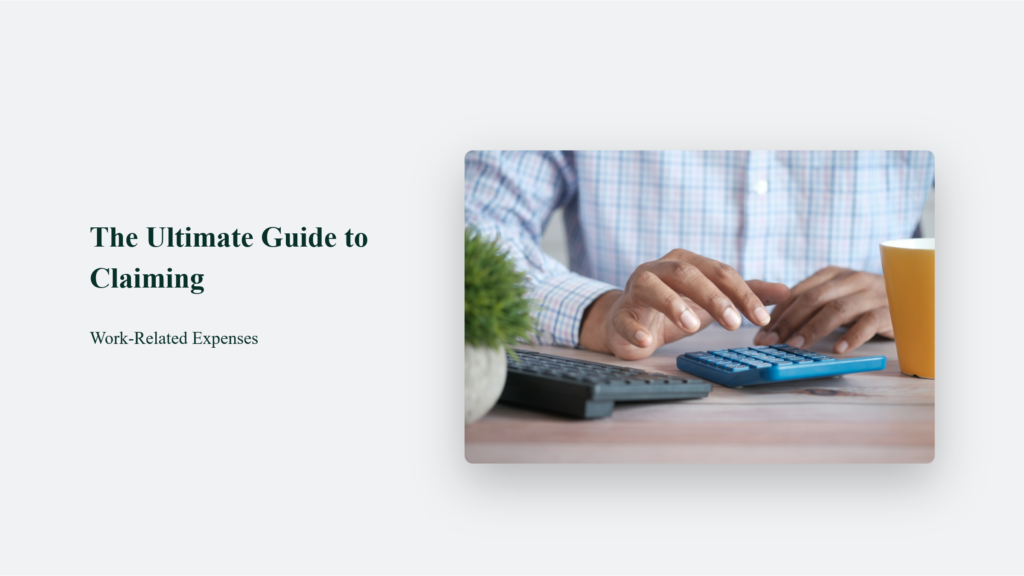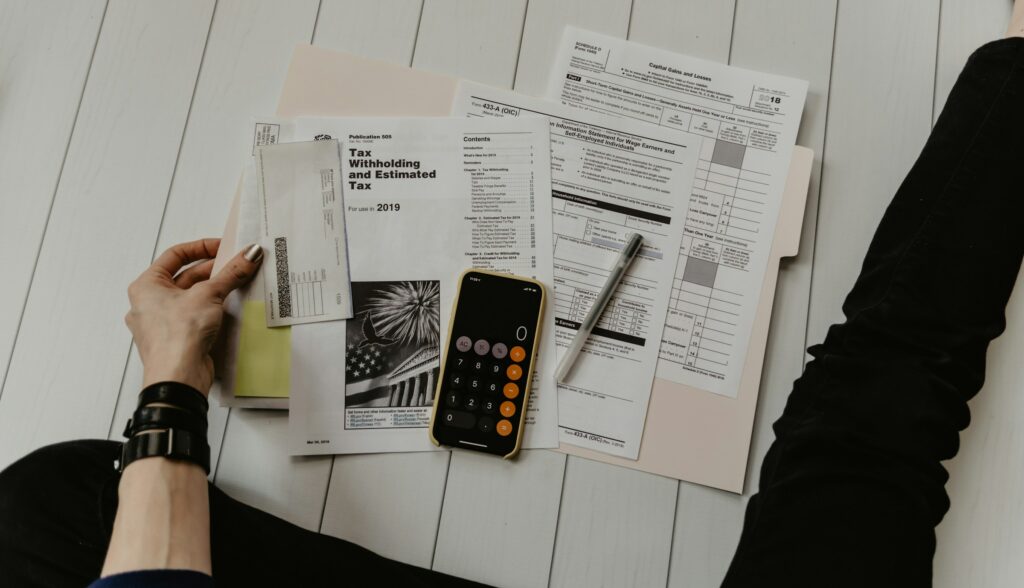As the financial year draws to a close, it’s time to get your ducks in a row and ensure you’re maximizing your tax deductions. One area that often gets overlooked is work-related expenses.
Whether you’re a corporate executive or a self-employed freelancer, understanding what you can and can’t claim can significantly affect your bottom line.

The Importance of Claiming Work-Related Expenses
Let’s start with a relatable anecdote. Imagine you’re a sales representative who spends a significant portion of your time on the road, visiting clients and attending industry events. The costs associated with travel, accommodation, and client entertainment can quickly add up. By failing to claim these expenses, you’re essentially leaving money on the table – money that could be better spent on personal or business investments.
What Qualifies as a Work-Related Expense?
The provided sources do not contain information directly related to the definition or examples of work-related expenses defined by the Australian Taxation Office (ATO).
Therefore, based on existing knowledge, work-related expenses are costs that individuals incur while performing their job duties. These expenses must be directly related to earning your income and can include a variety of costs, such as:
Vehicle and Travel Expenses
If your job requires you to travel for work, you may be able to claim a deduction for:
- Fuel and oil costs
- Repair and maintenance expenses
- Vehicle registration and insurance
- Tolls and parking fees
- Public transport fares
- Accommodation and meal costs while travelling to work
It’s important to keep detailed records of your travel, including the dates, destinations, and purpose of the trips.
Home Office Expenses
With the rise of remote work, more and more people are claiming home office expenses. If you use a dedicated area of your home for work purposes, you may be able to claim a portion of your:
- Rent or mortgage interest
- Electricity and gas bills
- Internet and phone expenses
- Depreciation of office equipment and furniture
To claim these expenses, you’ll need to calculate the percentage of your home used for work purposes and keep records of your expenses.
Professional Development and Education
Investing in your professional growth can be a smart move, and the good news is that many of these expenses may be tax-deductible. You can potentially claim:
- Course fees for work-related education
- Textbooks and stationery
- Professional memberships and subscriptions
- Attendance at conferences and seminars
The key is ensuring that the education or development directly relates to your current employment.
Clothing and Laundry
If your job requires wearing a specific uniform or protective clothing, you can claim the cost of purchasing, repairing, and cleaning these items. However, regular clothing worn to work is generally not deductible.
Other Deductible Expenses
Depending on your profession, you may also be able to claim expenses related to:
- Union fees
- Subscriptions to trade journals and publications
- Home office equipment and furniture
- Stationery and office supplies
- Mobile phone and internet costs (for work purposes)
Statistics and Data:
- In the 2019-20 financial year, Australians claimed more than $19.8 billion in work-related expenses.
- On average, each individual claimed $2,331 in work-related expenses.
- The most frequently claimed expenses were
- Vehicle expenses totalling $7.9 billion.
- Travel expenses amount to $2.1 billion.
- Clothing expenses, which came to $1.8 billion.
- Self-education expenses, at $1.1 billion.
Process for claiming Work-Related expenses on tax returns in Australia:
Claiming work-related expenses on tax returns in Australia involves a specific process that adheres to the guidelines set by the Australian Taxation Office (ATO). Here’s a detailed overview of the process:
- Ensure the Expense is Work-Related: The expense must be directly related to earning your income. It’s crucial to differentiate between expenses incurred in the course of performing your job and personal expenses.
- Spend the Money Yourself and Not Get Reimbursed: You must have spent the money yourself and not have been reimbursed by your employer. Only out-of-pocket expenses qualify for deductions.
- Keep Records: You must have a record to prove the expense, usually a receipt. A detailed diary entry or logbook can suffice for expenses where it’s impractical to obtain a receipt. This is essential for substantiating your claims if the ATO requests evidence.
- Use the Correct Method for Calculating Deductions: There are specific methods for calculating the deductible amount for some expenses, such as working from home or vehicle expenses. For example, the ATO allows a fixed rate per hour for home office expenses or a set rate per kilometre for vehicle expenses. Choosing the correct method is crucial for accurately claiming these deductions.
- Prorate for Personal Use: If the expense was incurred for work and private purposes, you can only claim a deduction for the work-related portion. Accurately determining the work-related percentage of the expense is necessary to ensure compliance with ATO guidelines.
- Lodge Your Tax Return: You can claim work-related expenses when lodging your annual tax return. You can do this online through the ATO’s myTax platform, through a tax agent, or on paper forms. It is crucial to include detailed information about your deductions in the relevant sections of the tax return.
- Use Tools Provided by the ATO: The ATO offers tools such as the myDeductions tool in the ATO app, which can help you keep track of your work-related expenses throughout the year. This tool can simplify the process of recording and claiming deductions at tax time.
- Consult Occupation and Industry Guides: The ATO provides occupation and industry-specific guides that outline common deductible expenses for various professions. These guides can be a valuable resource for understanding what you can claim.
- Understand the Impact on Your Taxable Income: Tax deductions reduce your taxable income, which can lead to a higher tax refund or lower tax liability. However, it’s important to remember that you don’t get all the money back you spend on tax-deductible items or services, but rather a percentage based on your marginal tax rate.
By following these steps and adhering to the ATO’s guidelines, Australian taxpayers can accurately claim work-related expenses on their tax returns, potentially reducing their taxable income and maximizing their tax refund.
The Bottom Line:
By understanding and properly claiming your work-related expenses, you can save thousands of dollars on your tax bill each year. Remember, the key is to keep accurate records, claim only eligible expenses, and consult with a tax professional if you’re unsure about any aspect of the process.
Frequently Asked Questions:
Can I claim expenses for working from home?
Yes, you can claim a portion of your home office expenses, such as electricity, internet, and depreciation of office equipment, if you have a dedicated work area in your home.
Do I need to keep receipts for all my expenses?
Yes, it’s essential to keep receipts, invoices, and other documentation to substantiate your claims. The ATO may request these records during an audit.




